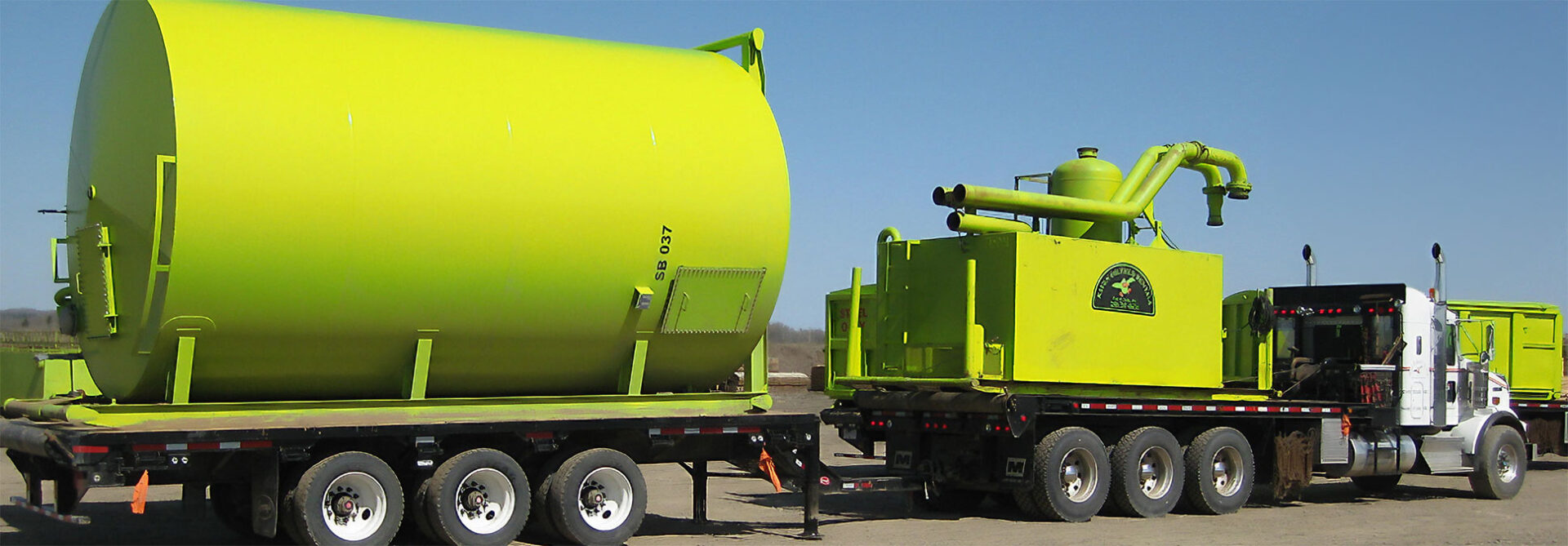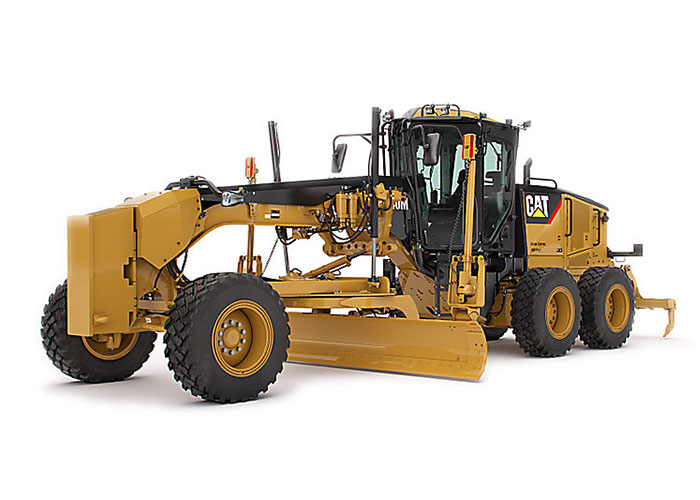Everything you should know about Superior Rentals reviews: what clients say
Wiki Article
A Comprehensive Guide to the Various Sorts Of Oil Field Equipment and Pipeline Equipment Available
The oil and gas industry relies heavily on specialized equipment for efficient removal and transport. Numerous kinds of equipment, from piercing rigs to storage space tanks, play important functions in this complex process. Each tool offers unique functions that contribute to general operational success. Understanding these parts is essential for anyone entailed in the field. As the market develops, so too do the technologies that sustain it. What advancements are on the perspective?
Drilling Rigs: The Foundation of Oil Exploration
Drilling rigs act as the essential machinery in the domain name of oil expedition, enabling business to gain access to hydrocarbon books hidden deep beneath the Earth's surface area. These rigs can be found in various kinds, consisting of land rigs, offshore rigs, and mobile units, each created to run in specific atmospheres. Outfitted with advanced technology, drilling rigs can pass through geological developments with accuracy, guaranteeing effective source removal. The architectural integrity and operational abilities of these rigs are essential, as they should stand up to severe conditions and significant pressures. Furthermore, the selection of an exploration gear impacts the overall project cost and timeline, making it an essential consideration for oil business looking for to maximize their exploration efforts and optimize productivity in their operations.Pumps: Crucial for Liquid Activity
In the oil removal process, the role of pumps is significant, facilitating the movement of fluids throughout various stages of production. Pumps are necessary for moving unrefined oil, water, and various other liquids from underground storage tanks to the surface and afterwards via pipelines to refineries. They can be found in various types, consisting of centrifugal, positive displacement, and completely submersible pumps, each offering details functions based on the liquid attributes and operational requirements. Centrifugal pumps are generally utilized for their efficiency in high-flow applications, while favorable displacement pumps succeed in managing viscous liquids. The choice of pump influences general efficiency, functional safety, and upkeep costs. Correct selection and upkeep of pumps are important for maximizing production and decreasing downtime in oil field procedures.Shutoffs: Controlling Flow and Pressure

Shutoffs play an important function in handling the circulation and stress of liquids within oil fields and pipelines. Various sorts of valves offer distinctive applications, each made to fulfill particular functions essential for effective procedure - Superior Oilfield Rentals oilfield. Recognizing the features and usages of these shutoffs is crucial for maximizing system efficiency and safety and security
Kinds of Valves
Crucial parts in oil area procedures, shutoffs play a vital duty in managing the flow and pressure of fluids within pipelines and tools. Numerous sorts of valves are utilized to meet the varied demands of oil and gas manufacturing. Typical types consist of gateway shutoffs, which offer a straight-line flow and minimal stress decrease; globe valves, recognized for their strangling abilities; and ball shutoffs, identified for their fast on/off control. Furthermore, check valves protect against heartburn, while butterfly valves offer a light-weight option for regulating circulation. Each valve kind is created with particular materials and arrangements to stand up to the harsh problems commonly discovered in oil fields, making certain dependability and efficiency in procedures. Understanding these kinds is vital for effective system monitoring.Valve Applications and Functions
While numerous kinds of valves offer unique objectives, their main applications focus on managing circulation and pressure within oil and gas systems. Shutoffs such as gate, world, and ball shutoffs regulate fluid activity, guaranteeing peak efficiency and security. Gateway valves are frequently utilized for on/off control, supplying marginal flow resistance. World valves, on the other hand, deal accurate circulation law, making them appropriate for strangling applications. Ball valves are preferred for their quick operation and limited securing capabilities. In enhancement, stress relief valves are essential for avoiding system overpressure, protecting tools stability. Overall, the suitable choice and application of valves improve functional efficiency, making sure the reputable transport of oil and gas via pipes and processing facilities.Compressors: Enhancing Gas Transport
Compressors play a critical role in the efficient transport of gas, making certain that it relocates efficiently through pipelines over cross countries. These gadgets enhance the stress of all-natural gas, permitting it to get over rubbing and altitude adjustments within the pipeline system. In addition, compressors facilitate the balancing of supply and demand, accommodating fluctuations in consumption and production rates. Various types of compressors are employed in the industry, including centrifugal, reciprocating, and rotary screw compressors, each offering distinct benefits based upon the functional needs. Normal upkeep of these compressors is important to maximize efficiency and minimize downtime, ultimately adding to a reliable gas transport network. Their essential feature highlights the value of compressors in the overall oil and gas infrastructure.Storage Tanks: Safe and Reliable Liquid Administration
Efficient transport of all-natural gas depends on different supporting systems, among which is the proper management of storage space tanks. These tanks play an essential duty in safely containing liquids, guaranteeing that operational performance is preserved while minimizing ecological dangers. Created from long lasting materials, they are made to stand up to high pressures and destructive elements. Effectively sized and tactically situated, tank assist in the smooth flow of gas and other fluids, preventing traffic jams in supply chains. Regular maintenance and monitoring are necessary to discover leakages or content structural concerns, promoting security and conformity with regulative criteria. Ultimately, the efficient monitoring of tank is crucial for the general integrity and dependability of the oil and gas sector's liquid handling systems.
Pipeline Solutions: Framework for Transport
Pipeline systems act as the backbone of the oil and gas sector, helping with the effective transport of hydrocarbons over vast distances. These systems contain numerous components, including pipelines, shutoffs, pumps, and compressors, all meticulously developed to ensure smooth circulation. The materials used in pipeline building, usually steel or high-density polyethylene, are selected for sturdiness and resistance to rust. Pipeline networks can extend across land and water, connecting production sites to refineries and warehouse. Additionally, advanced technology enables real-time tracking of flow rates and pressure levels, enhancing operational effectiveness. The tactical placement of these pipelines decreases environmental impact while making best use of resource ease of access, thereby playing an essential role in conference power needs internationally.Security Equipment: Guaranteeing Worker and Environmental Management
The operation of pipeline systems, while crucial for power transport, likewise provides significant security challenges for employees and the setting. Security devices plays a significant duty in minimizing these threats. Personal protective tools (PPE) such as safety helmets, gloves, and non-slip footwear safeguards employees from physical dangers. Additionally, gas discovery systems keep an eye on for leaks, ensuring that harmful materials do not present a risk to employees or the bordering community. Emergency closure systems are vital for rapidly stopping operations throughout a dilemma, preventing prospective disasters. Spill control materials, consisting of absorbents and barriers, are essential for minimizing ecological impact. On the whole, buying comprehensive security tools is vital for keeping functional integrity and shielding both workers and the atmosphere in the oil and gas sector.
Often Asked Concerns
Exactly how Do I Select the Right Oil Field Equipment for My Job?
Selecting the best oil field devices involves assessing project specifications, budget constraints, and functional demands. Take into consideration factors such as tools integrity, compatibility with existing systems, and the vendor's track record to ensure peak performance and safety.What Are the Upkeep Needs for Oil Field Equipment?
Maintenance requirements for oil area tools include regular inspections, lubrication, and prompt repair services. Operators must also stick to supplier standards, monitor efficiency gas line pipe metrics, and assurance compliance with safety and security guidelines to improve longevity and performance.
Exactly How Can I Make Certain Compliance With Environmental Regulations?
To ensure conformity with ecological regulations, business have to perform regular audits, execute finest techniques, spend in training, maintain proper paperwork, and remain upgraded on regulation (Superior rentals squeeze tools). Collaboration with environmental agencies can also enhance adherence to regulationsWhat Is the Average Lifespan of Pipeline Equipment?
The average lifespan of pipeline equipment usually varies from 20 to 50 years, depending upon elements such as material high quality, read the article environmental conditions, and maintenance techniques. Normal examinations can greatly affect long life and functional effectiveness.Exactly how Do I Safely Transport Oil Field Equipment to Remote Locations?
Transferring oil field tools to remote areas needs cautious planning, consisting of course evaluation, protecting permits, making use of ideal automobiles, and making sure safety and security protocols are adhered to. Correct training and communication among crews are vital for effective transport.Report this wiki page